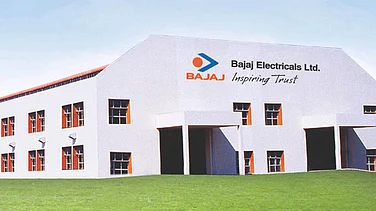The stability and growth of public limited companies which are engaged in lending activities play a crucial role in the dynamic landscape of India’s economy. Banks and NBFCs are both institutions of public trust, where either they take money from a public depositor in the case of a Bank, or Public Financial Institutions in the case of NBFCs.
Regulators across the globe, specially in India, have always held the view that in the case of Banks and NBFCs, there should not be one singular significant shareholder which has influence over the governance of Banking institutions. The past has often shown that monopolised shareholding leads to issues of governance.
Diversified shareholding refers to a situation where the ownership of a company’s shares is spread across a wide range of investors, including institutional investors, foreign investors, retail investors, and promoters. This contrasts with concentrated shareholding, where a small group of shareholders, often the founders or family members, hold a significant portion of the company's shares.
The Indian market has historically been characterized by concentrated shareholding, especially in family-owned businesses. However, recent trends indicate a shift towards more diversified shareholding structures. This shift is influenced by various factors, including regulatory changes, increasing foreign investments, and the growing participation of retail investors.
Benefits of Diversified Shareholding:
1. Enhanced Corporate Governance: With a broader base of shareholders, companies are more likely to adhere to transparent and accountable management practices. The presence of institutional and foreign investors often brings in stricter governance norms, pushing companies towards higher standards of disclosure and accountability.
2. Mitigated Risks: The distribution of ownership among a wide array of shareholders helps mitigate risks associated with concentrated control. It also reduces the likelihood of decisions being driven by the interests of a few dominant shareholders. This diversified control can protect the company from governance-related issues and ensure that decisions are made in the best interest of all shareholders.
3. Increased Capital Access: Banks and NBFCs with diversified shareholding structures often find it easier to raise capital. A diverse investor base, including institutional and foreign investors, enhances the company’s credibility and makes it more attractive to potential investors. This access to capital is crucial for maintaining growth and regulatory capital and create buffer for future shocks.
4. Market Confidence: Investors tend to have more faith in companies with a balanced shareholding structure as it signifies stability and reduces the risk of sudden changes in control. This confidence is reflected in the company’s stock performance, leading to better valuations and liquidity.
The regulatory framework in India has been evolving to support diversified shareholding. The Securities and Exchange Board of India (SEBI) has introduced various measures to encourage greater transparency and accountability in publicly listed companies. Regulations pertaining to the disclosure of significant beneficial ownership, related party transactions, and mandatory corporate governance norms are steps in this direction.
Diversified shareholding is increasingly being recognized as a cornerstone for driving growth and enhancing stability in public limited companies in India. As companies move towards more balanced ownership structures, they are better positioned to leverage the benefits of improved corporate governance, reduced risks, increased capital access, enhanced market confidence, and strategic decision-making.
The evolving regulatory landscape further supports this trend, making diversified shareholding a pivotal factor in the sustainable growth of publicly listed companies in India. As the market continues to mature, embracing diversified shareholding will be key to building resilient and growth-oriented companies that contribute to the overall economic development of the country.
(The author is the Founder & MD of UGRO Capital)
(The views belong solely to the author)


























